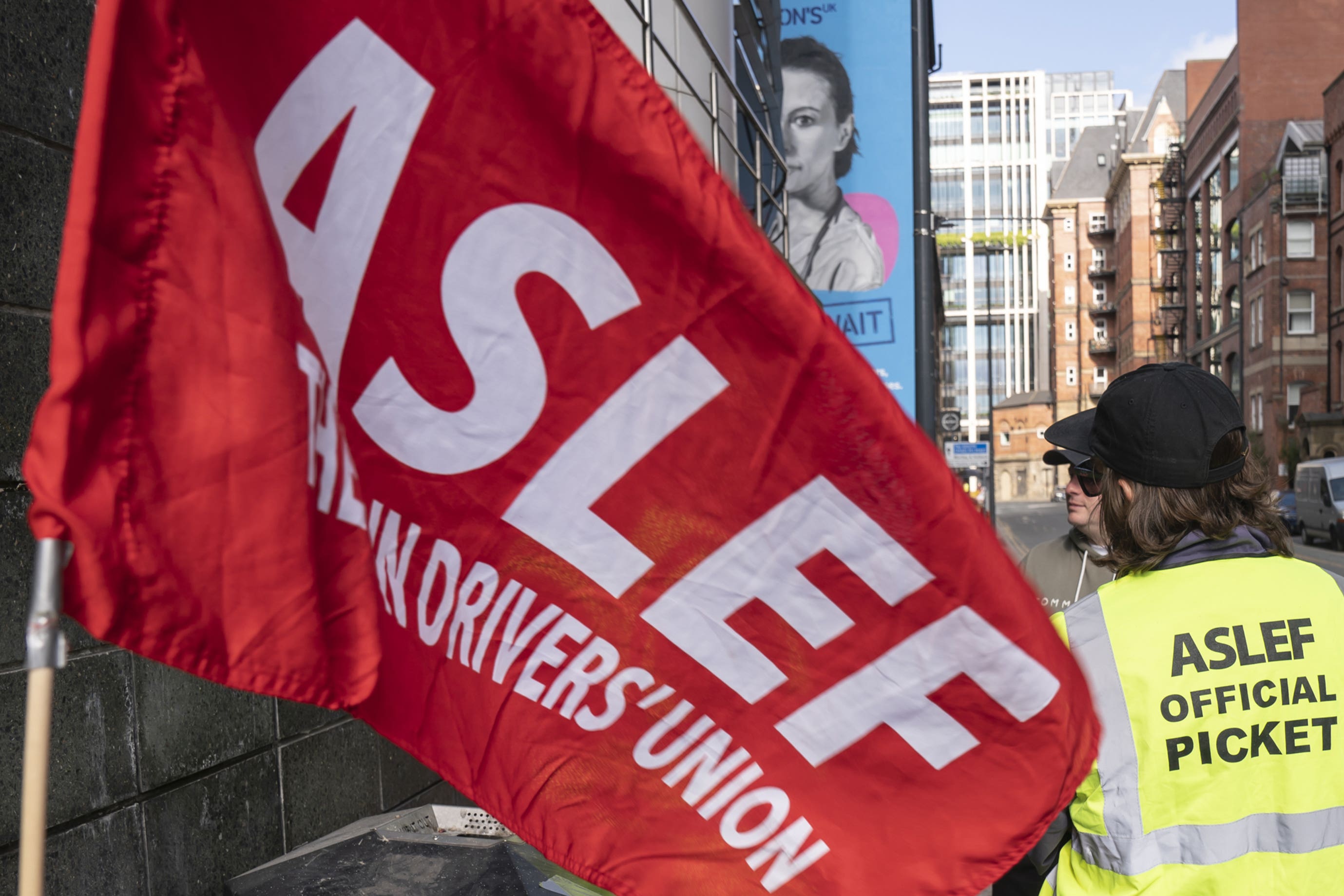Train drivers to stage fresh strikes over pay
Members of Aslef will take part in a rolling programme of walkouts as well as banning overtime.

Train drivers are to stage a series of fresh strikes and an overtime ban in their long-running dispute over pay, causing more travel chaos for passengers.
Members of Aslef will take part in a rolling programme of one-day strikes from January 30 to February 5 and ban overtime for nine days from January 29.
The union said it wanted to put pressure on “intransigent” train operating companies as well as the “tone-deaf Tory government” to give train drivers their first pay rise in almost five years.
Drivers will strike at Southeastern, GTR Southern/Gatwick Express, GTR Great Northern Thameslink, SWR Island Line, and South Western Railway main line and depot drivers on Tuesday 30 January; at Northern Trains and TransPennine Trains on Wednesday 31 January; at C2C, Greater Anglia, and LNER on Friday 2 February; at Avanti West Coast, East Midlands Railway, and West Midlands Trains on Saturday 3 February, and at Chiltern, CrossCountry, and GWR on Monday 5 February.
Aslef general secretary Mick Whelan said: “We have given the Government every opportunity to come to the table but it has now been a year since we had any contact from the Department for Transport. It’s clear they do not want to resolve this dispute.
“Many of our members have not had a single penny increase to their pay for half a decade, during which time inflation has soared and, with it, the cost of living.
“Train drivers didn’t even ask for an increase during the Covid-19 pandemic when we worked throughout lockdown as key workers, risking our lives, to move goods around the country and to enable NHS and other workers to get to work.
“The Tory government has now tried its old trick of changing the rules. When they couldn’t win they brought in minimum service levels legislation.
“But this new law, as we told officials during the consultation period, won’t ease industrial strife. It will just make it worse.
“There is, frankly, no excuse for this nonsense. The Government and train operating companies (TOCs) should come to the table with a realistic offer so we can end this dispute and work together to ensure the future of our railways.”
The, strikes, which will cripple train services, mainly across England, could be the first test of new regulations aimed at ensuring a minimum level of service during strikes, set at 40% in the transport sector.
A Rail Delivery Group spokesperson said: “Nobody wins when strikes impact lives and livelihoods, and they’re particularly difficult to justify at a time when taxpayers are continuing to contribute an extra £54 million a week to keep services running post-Covid.
Rail companies have made a fair and reasonable offer, and we would encourage them (Aslef) to step back from this action
“Despite the railway’s huge financial challenge, drivers have been made an offer which would take base salaries to nearly £65,000 for a four-day week without overtime – that is well above the national average and significantly more than many of our passengers that have no option to work from home are paid.
“Instead of staging more damaging industrial action, we call on the Aslef leadership to work with us to resolve this dispute and deliver a fair deal which both rewards our people, and makes the changes needed to make services more reliable.”
The Prime Minister’s official spokesman said: “This is extremely disappointing. Not least to commuters, who have already been so badly hit by Aslef’s decision to continually strike.
“Aslef drivers continue to be paid far above what the average person in the UK receives.
“Rail companies have made a fair and reasonable offer, and we would encourage them to step back from this action.”
Aslef is now the only rail union that is continuing to strike while refusing to put a fair and reasonable offer to its members
A Department for Transport spokesperson said: “It’s very disappointing to see Aslef continuing to target those who travel to work, school or important medical appointments by train.
“Aslef is now the only rail union that is continuing to strike while refusing to put a fair and reasonable offer to its members.
“The offer that remains on the table and would bring the average train driver’s salary up to £65,000.
“The Aslef leadership should do the right thing and let their members decide their own future, instead of deciding it for them.”
Bookmark popover
Removed from bookmarks